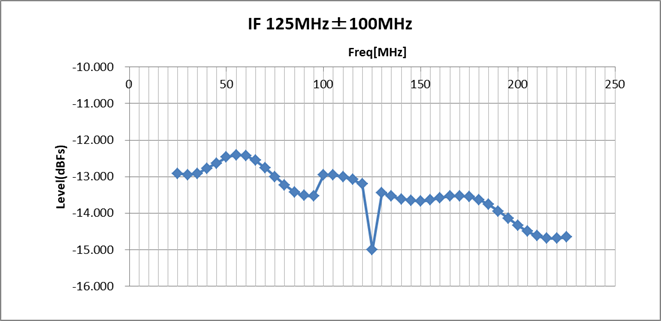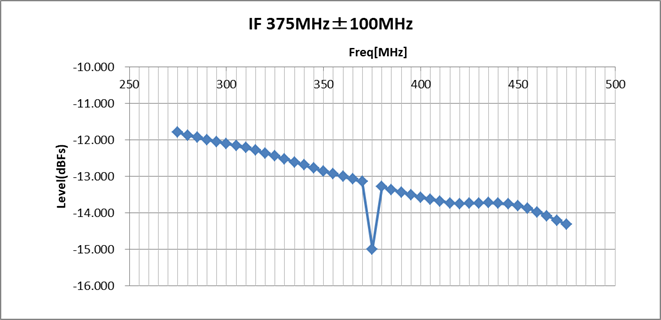Other Parts Discussed in Thread: ADS54J60
Hello,
My customer have a question about ADS54J42.
[Q]
They are evaluating ADS54J42 on their board.
The issue is about 2dB lower when the input frequency is 1/4*fs or 3/4*fs.
Their sampling rate is 500MSPS.
The following is the evaluation results.
I think this is due to the interleaving block and the setting.
Do you have a way to avoid this issue ?
Best Regards,
Hiroshi Katsunaga




